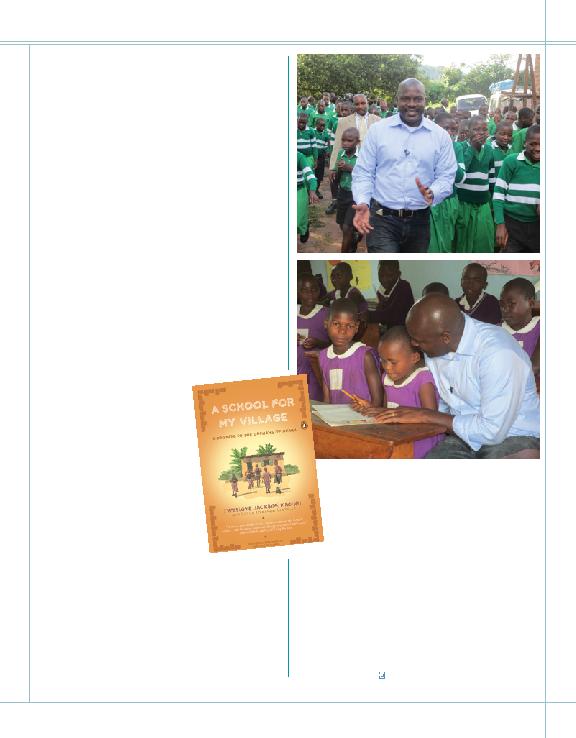
founding the school?
were doing; he didn't think it was a good idea. He lost a son and a
daughter, and now his son was building a school for orphans. You
had other people who thought, "Well this could be a good idea, but
why is he doing what he's doing?" There are misconceptions that in
order to change people's lives you need to be rich and connected;
they thought that maybe I wanted to be a politician in order to do
this. Also, people have a misconception about Africa. They think
nothing in Africa works. They read stories about corruption, and
they think nothing going to Africa is going to work. Many people
here who were potential donors were doubting whether it would
work. But we had a holistic view. There was micro-financing, we
had a library. Many people including some of our board members
said to me, "Can we maintain all these programs?" We listen to
the people on the ground first and foremost, more than the donors.
Instead of using a picture of a child to draw sympathy, we use a
positive story about a child on the website. It's a different way of
doing things, the way we've presented people. We want you to be
involved because you believe in the child and you want to make
a difference to the child not because you are thinking "Poor
African child." Yes, you can do things differently. You can give
people dignity and respect them while still making a difference.
Nyaka Project?
school. Our children have finished primary
school; we proved we can do what no
one has done. That's because we used
a holistic approach. We made sure that
adolescents attend school through puberty
because they get sanitary products. When
my sister hit puberty, she dropped out of
school because she could not walk seven
miles with leaves as sanitary products.
We've provided sanitary products, clean
water, two meals, healthcare, a library that holistic approach has
helped them. Our children have passed their exams 100%! We
expect they will pass again in November. I was invited to address
the United Nations because the United Nations was failing on this.
They are looking at education alone without looking at the other
factors. We want to have our own system that will encourage
the holistic approach teachers who teach, care, and give clean
water so these students will be ready to go to university.
play soccer two times a week when I'm in town--I try
on many swimming training practices. We travel a lot, whether
we're traveling for work or just for pleasure. We just came from a
vacation in Puerto Rico. In the beginning, it was not so balanced.
For nine years, I had a full-time job at Michigan State University
while also running the project for some time. So in every moment
of free time, I would work on the project. Now I take vacations.
When anybody's beginning to do the work we're doing, it's going
to be hard to have balance, but without being sane and in good
health, it will be hard.